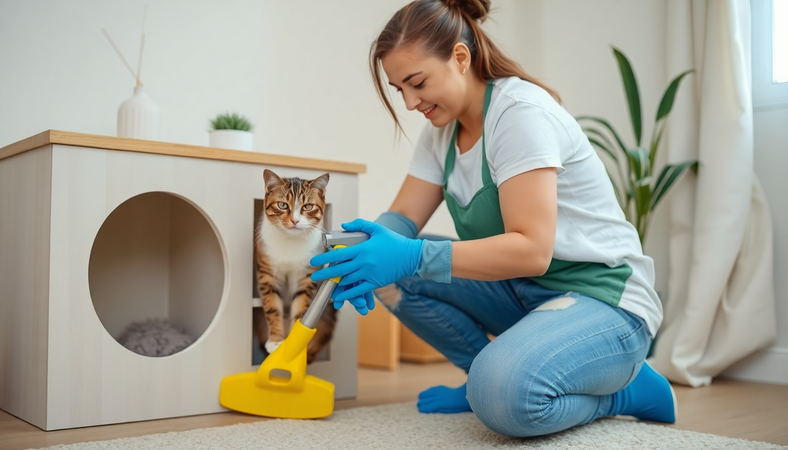
Preventing FIP in Cats: Best Practices for Cat Owners
Feline Infectious Peritonitis (FIP) is a serious disease that affects cats worldwide. It’s caused by a mutation of the feline coronavirus, and unfortunately, it can be fatal if left untreated. Knowing how to prevent FIP in cats is crucial for every cat owner who wants to keep their pets healthy and safe.
Understanding FIP and Its Risks
What is FIP?
FIP is an illness triggered by a mutated form of the feline coronavirus. While most cats exposed to the virus only experience mild symptoms or none at all, some develop FIP, which attacks the immune system and causes severe inflammation in the abdomen, chest, or central nervous system.
FIP Risk Factors
Certain factors increase a cat’s chance of developing FIP. Young cats under two years old are most at risk. Cats with weakened immune systems or chronic stress also have a higher likelihood. Some breeds, like Bengals and Rex cats, show a slightly higher tendency to develop FIP. The environment plays a role too; cats living in crowded or unsanitary places face greater risks.
How FIP Spreads: Transmission Methods
The feline coronavirus, the source of FIP, spreads mainly through feces. When an infected cat sheds the virus, others can catch it by grooming or sharing litter boxes. Direct contact with saliva or nasal discharge can also spread the virus, but fecal-oral transmission is the primary method. Understanding how FIP spreads helps cat owners take steps to reduce infection.
Best Practices to Prevent FIP in Cats
Quarantine New Cats
Introducing a new cat to your home can be exciting, but it’s important to quarantine the newcomer for at least two to four weeks. Isolation helps to identify any infections or illnesses before exposing other cats. During this time, monitor the new cat’s health closely and keep food, water, and litter separate.
Cleaning Cat Environments
Regular cleaning plays a key role in preventing FIP. Thoroughly cleaning litter boxes daily removes potential virus sources. Use safe disinfectants like diluted bleach or commercial pet-safe cleaners to clean cages, bedding, and common areas. Good ventilation and minimizing overcrowding also reduce infection chances.
Safe Cat Breeding Practices
Breeding cats with a history of FIP or known carriers of the feline coronavirus increases the chance of producing kittens vulnerable to the disease. Responsible breeders avoid mating cats with health issues related to FIP. Regular health screenings and genetic tests help ensure breeding stock is healthy and reduce the risk of passing on infections.
Additional Tips for Cat Owners
Stress weakens a cat’s immune system, so keeping your cats calm and comfortable lowers FIP risk. Provide enough space, toys, and quiet spots. Regular veterinary checkups are essential to catch early signs of illness. Early detection combined with treatment options improves outcomes significantly.
How FIP-Cure Supports Cat Owners
At FIP-Cure, we offer access to effective treatments based on GS-441524 that have a 96% cure rate. We believe every cat deserves a chance, which is why we provide this lifesaving treatment at charity prices. Our fast worldwide shipping ensures your cat receives care promptly. We save cats every day by supporting owners through education and affordable options.
Conclusion
FIP is a devastating disease, but with the right knowledge, cat owners can drastically reduce their cats’ risks. Quarantine new cats, maintain clean environments, and follow safe breeding practices to protect your pets. Keep stress low, visit the vet regularly, and stay alert for symptoms. For trusted treatment and support, visit FIP-Cure and give your cat the best chance at a healthy life.
Take action today to safeguard your feline friend against FIP. Visit FIP-Cure to learn more about prevention and treatment options that save lives.
Need FIP Treatment for Your Cat?
Don't wait - early treatment gives the best chance of recovery from FIP.
Get FIP Treatment Now


